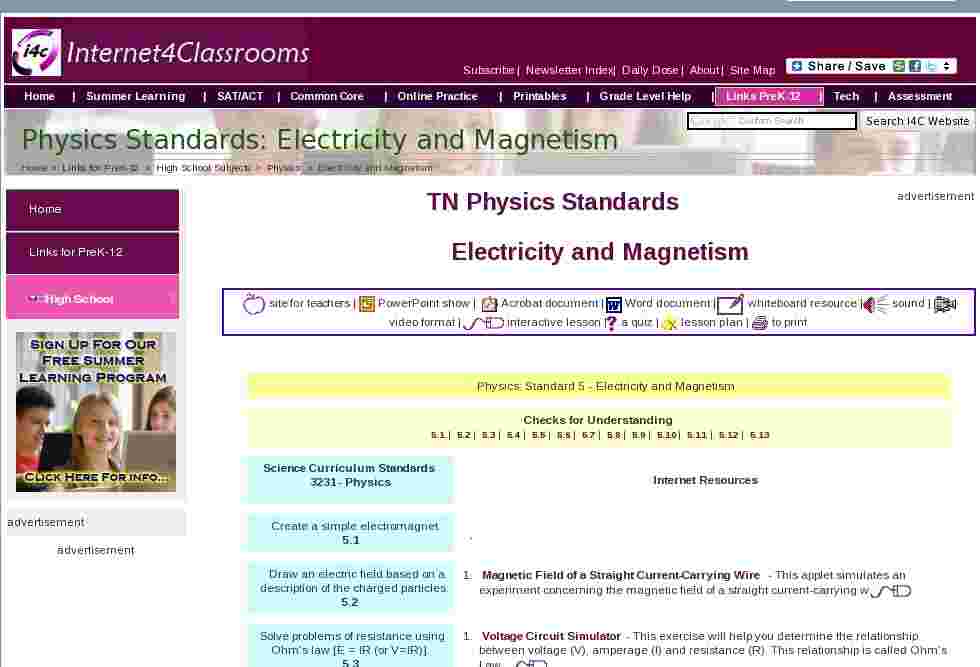TN Physics Standards
Electricity and Magnetism
site for teachers |
PowerPoint show |
Acrobat document |
Word document |
whiteboard resource |
sound |
video format |
interactive lesson |
a quiz |
lesson plan |
to print
Science Curriculum Standards
3231 - Physics
- Magnetic Field of a Straight Current-Carrying Wire - This applet simulates an experiment concerning the magnetic field of a straight current-carrying wire.
- Voltage Circuit Simulator - This exercise will help you determine the relationship between voltage (V), amperage (I) and resistance (R). This relationship is called Ohm's Law.
- Ohm’s Law - This applet shows a simple circuit containing one resistor. In addition there is a voltmeter (parallel to the resistor) and an ammeter (in series with the resistor)
- Ohm's Law (includes Voltage law and Current law)
- Simple AC Circuits - This Java applet shows a simple circuit consisting of an alternating voltage source and, depending on the selected radio button, a resistor (without inductivity), a capacitor or an ideal coil (without resistance).
- Combinations of Resistors - an applet illustrating either series or parallel
- Combinations of Resistors, Inductors and Capacitors - java applet
- Simple AC Circuits - This Java applet shows a simple circuit consisting of an alternating voltage source and, depending on the selected radio button, a resistor (without inductivity), a capacitor or an ideal coil (without resistance).
- Combinations of Resistors - an applet illustrating either series or parallel
- Combinations of Resistors, Inductors and Capacitors - java applet

Search Internet4Classrooms
 Custom Search
Custom Search
- Site Map |
- About Us |
- Teacher Training |
- Make Internet4Classrooms.com your home page. |
- Copyright © 2000-2024 Internet4Classrooms, LLC All rights reserved.
Use of this Web site constitutes acceptance of our Terms of Service and Privacy Policy.
1744510355469494 US 2 desktop not tablet not iPad device-width